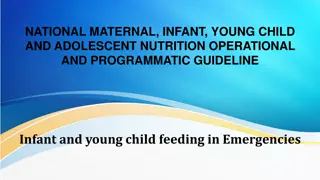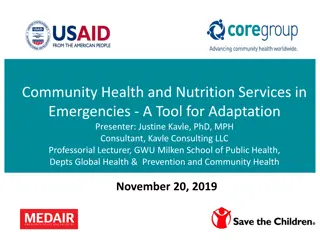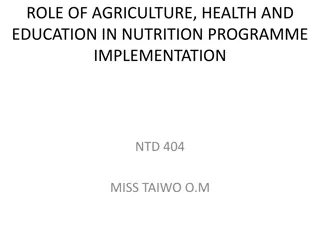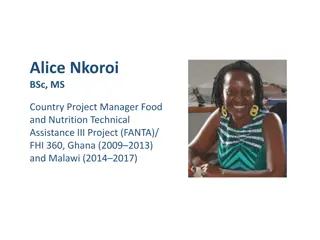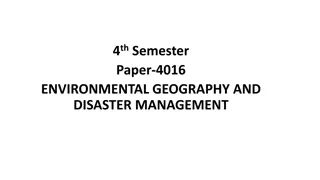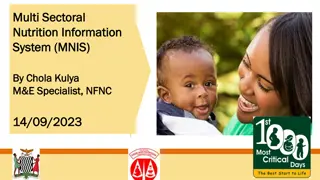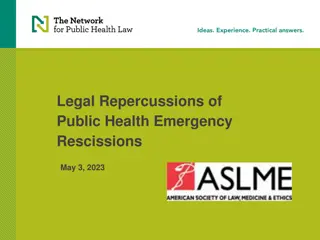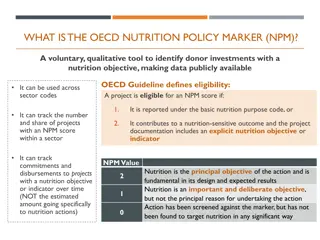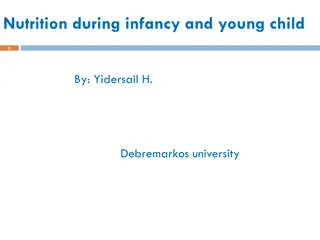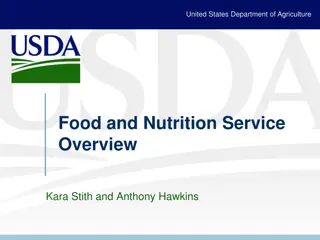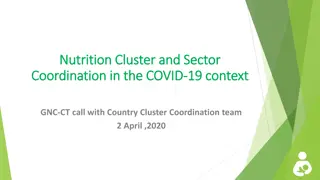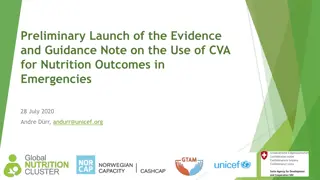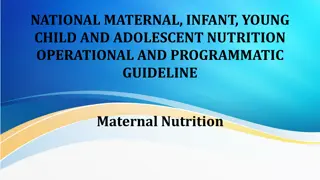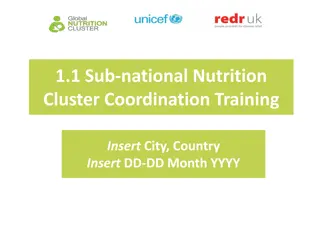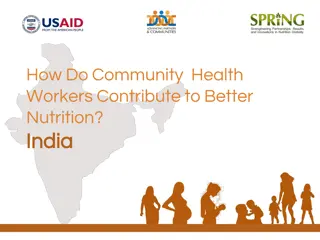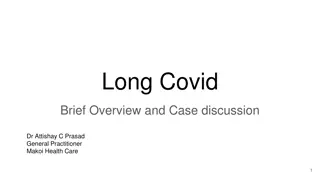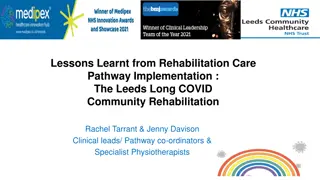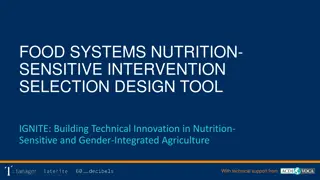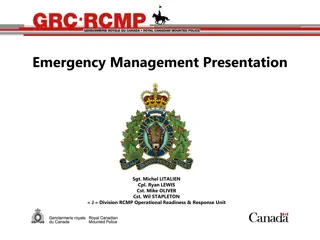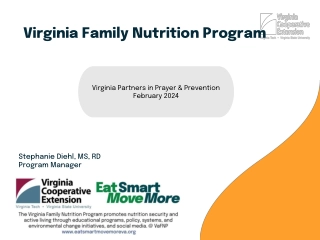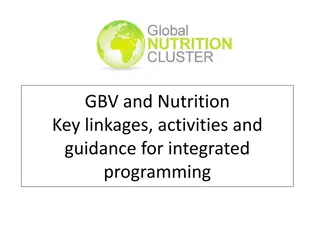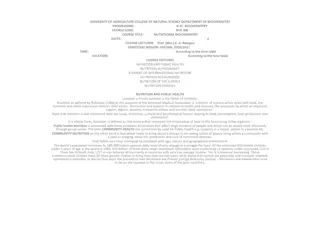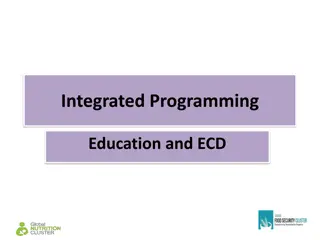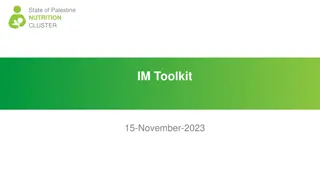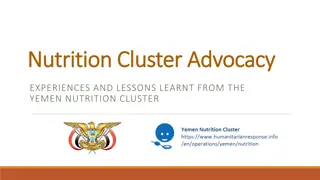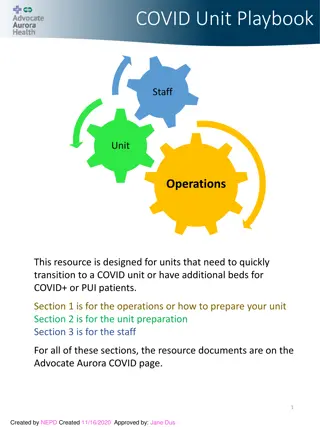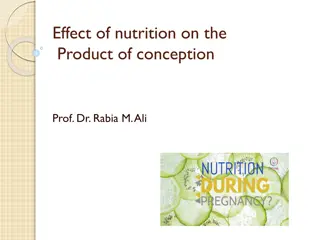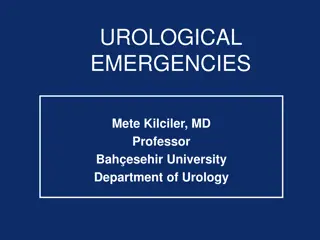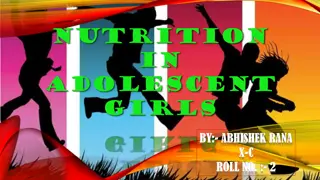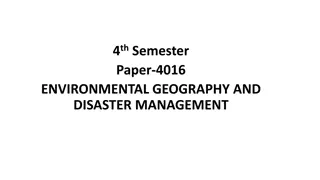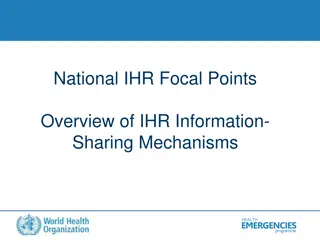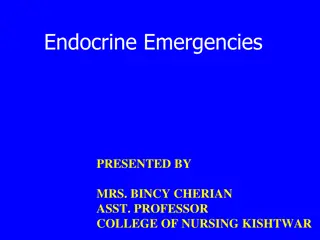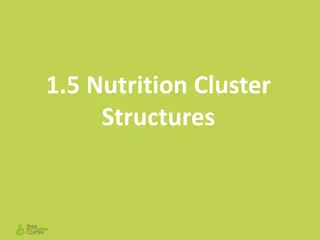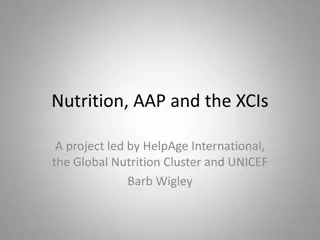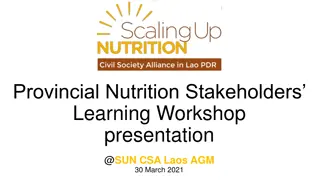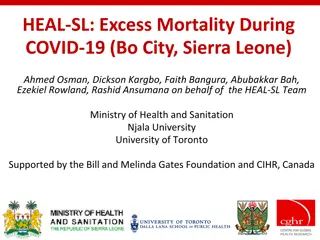Supporting Optimal Nutrition Practices during Emergencies: IYCF-E and COVID-19 Technical Brief
In the context of the COVID-19 pandemic, it is crucial to protect, promote, and support appropriate Infant and Young Child Feeding (IYCF) practices. This includes maintaining respiratory hygiene during feeding, emphasizing handwashing, and promoting breastfeeding with necessary precautions. The IYCF-E and COVID-19 technical brief provides key recommendations to ensure the well-being of young children amidst the global health crisis, emphasizing the importance of coordinated efforts across various sectors. Adherence to international guidelines on breastfeeding, promoting healthy diets, and managing child wasting are fundamental aspects of this guidance.
Download Presentation

Please find below an Image/Link to download the presentation.
The content on the website is provided AS IS for your information and personal use only. It may not be sold, licensed, or shared on other websites without obtaining consent from the author. Download presentation by click this link. If you encounter any issues during the download, it is possible that the publisher has removed the file from their server.
E N D
Presentation Transcript
A new tool: the nutrition in emergencies IYCF-E checklist 31 March 2020 Webinar GNC-CT
Outline IYCF-E and COVID19 presentation of the technical brief Background to creating the IYCF-E checklist Objectives of the checklist Presentation of the checklist Present different ways to use it Discuss interest in piloting its use in country
COVID19 and IYCF In the context of the COVID-19 pandemic, the recommended IYCF practices should be protected, promoted and supported while applying appropriate respiratory hygiene during feeding, care, and contact with the infant and the young child; i.e. Always wash hands with soap and flowing water frequently, including before and after all contact with the infant. Routinely clean surfaces, which the mother and child have been in contact with, using soap and water. If the mother has respiratory symptoms, use of a face mask when caring for the infant is recommended, if possible (even using home-made mask is better than nothing). Maintain physical distancing with other people and avoid touching eyes, nose and mouth. Infants born to mothers with suspected, or confirmed COVID-19 or infants whose mothers have confirmed or suspected Covid-19 should be fed according to standard IYCF recommendations and be breastfed while applying appropriate the mentioned hygiene practices. In situations when severe illness in a mother with COVID-19 or other health complications, prevents her from caring for her infant or prevents her from continuing direct breastfeeding, mothers should be encouraged and supported to express milk, and safely provide breastmilk to the infant, while applying the recommended hygiene measures.
IYCF-E and COVID19 technical brief Key recommendations in the IYCF-E and COVID19 brief Programmes and services to protect, promote and support optimal breastfeeding (early and exclusive) and age-appropriate and safe complementary foods and feeding practices should remain a critical component of the programming and response for young children in the context of COVID-19. Mothers with suspected or confirmed COVID-19 and isolated at home should be advised to continue recommended feeding practices with necessary hygiene precautions during feeding. Alignment and coordination in the mitigation plans across nutrition, health, food security and livelihood, agriculture, WASH, social protection and mental health and psychosocial support to focus on reaching infants and young children in the context of COVID-19. Actions through relevant systems (Food, Health, WASH, and Social Protection) should prioritize the delivery of preventive services to mitigate the impact of the pandemic on young children s diets and wellbeing with strong linkages to early detection and treatment of child wasting. Full adherence to the International Code of Marketing of Breast-milk Substitutes and subsequent WHA resolutions (including WHA 69.9 and the associated WHO Guidance on ending the inappropriate promotion of foods for infants and young children) in all contexts in line with the recommendations of IFE Operational Guidance. Donations, marketing and promotions of unhealthy foods - high in saturated fats, free sugar and/or salt - should not be sought or accepted. 1. 2. 3. 4. 5. 6.
Background to creating the IYCF-E checklist How do we assess the colllective s nutrition interventions or service delivery aspect of the response? Individual agencies reviews or evaluations No standard evaluation or review for the nutrition sector for the service delivery aspect or technical aspect of the collective nutrition cluster or sector response
Objectives of the checklist This checklist is a tool designed to help each nutrition country cluster review and reflect on the service delivery aspect of the nutrition in emergency response.
Presentation of the IYCF-E checklist The checklist is organized by nutrition in emergency themes, the four main themes tackled are Part I. Infant and Young Child Feeding in Emergencies, Part II. Acute Malnutrition Management, Part III. Nutrition Information Systems and Part IV. Micronutrients Supplementation. Under each theme, a set of questions are asked in the left column to prompt reflection, elements of the answer and examples from other countries are under the right-hand column. The questions under each theme span the humanitarian program cycle
Present possible ways of using it The checklist is to be used at least once a year by the nutrition cluster coordination country team or any in-country nutrition in emergency mechanism- to self-assess the quality of the service delivery aspect of the nutrition response before, during and/or after a crisis. For the IYCF-E checklist in particular, it would be ideal if the IYCF-E Technical Working Group goes over the checklist and does a self- assessment on what is missing
Access the checklist online http://nutritioncluster.net/resources/iycf-e-checklist/
Countries interested in piloting it Discuss which countries are interested in piloting it


